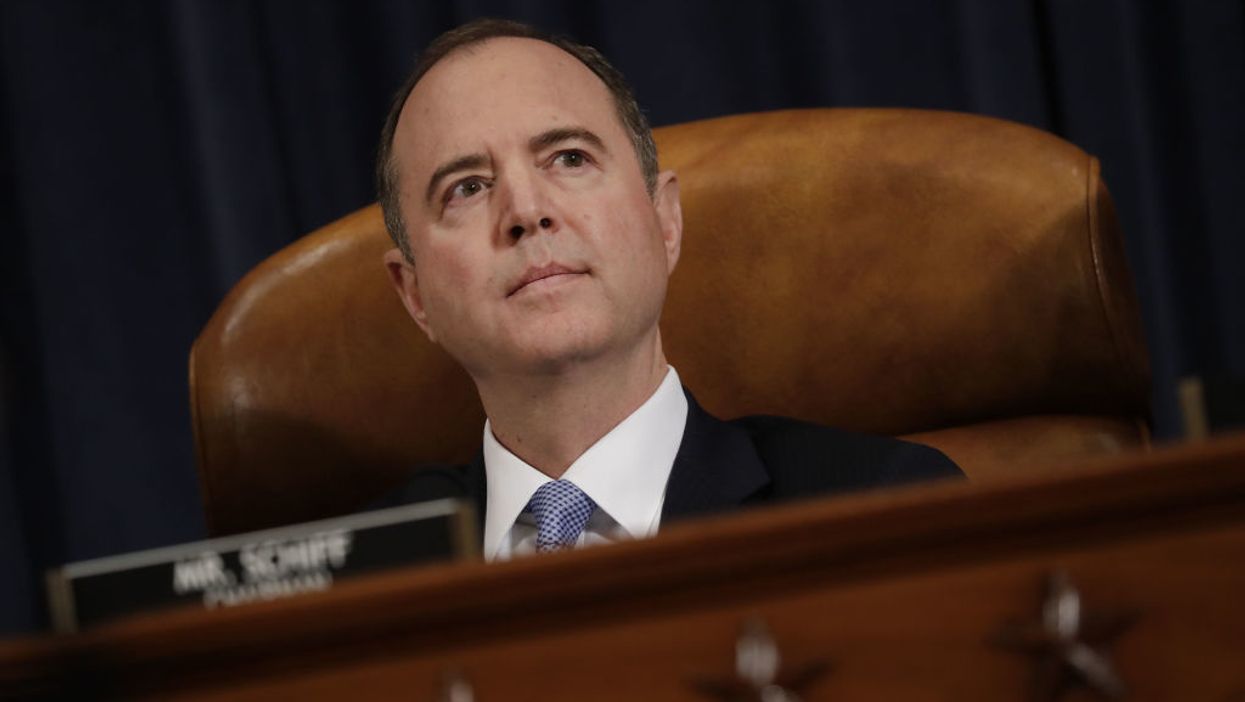
Photographer: Andrew Harrer/Bloomberg via Getty Images

Is this believable?
During the first public impeachment hearing Wednesday, House Intelligence Chairman Adam Schiff (D-Calif.) said he does not know the identity of the whistleblower who started the impeachment inquiry into President Donald Trump.
At the beginning of the hearing, Rep. Jim Jordan (R-Ohio) asked Schiff when the committee would be able to vote on having the whistleblower testify.
"You are the only member who knows who that individual is, and your staff is the only staff of any member of Congress who has had a chance to talk with that individual," Jordan said. "We would like that opportunity. When might that happen in this proceeding today?"
"First, as the gentleman knows, that's a false statement. I do not know the identity of the whistleblower and I'm determined to make sure the identity is protected," Schiff said in response. "But as I said to Mr. Conway, you'll have an opportunity after the witnesses have testified to make a motion to subpoena any witness and compel a vote."
Adam Schiff Says He Does Not Know the Identity of the Whistlebloweryoutu.be
According to TheBlaze's story last month, Schiff claimed neither he nor his committee had contact with the whistleblower and that he might never have found out about the whistleblower complaint if the Intelligence Committee inspector general had not brought it to the committee.
These two statements were blatantly false.
"I should have been much more clear," Schiff conceded in an interview with "Face the Nation." "I said so the minute it was brought to my attention that I was referring to the fact that, when the whistleblower filed the complaint, we had not heard from the whistleblower. We wanted to bring the whistleblower in at that time, but I should have been much more clear."
In reality, the whistleblower spoke with Intelligence Committee staff before filing the complaint, seeking advice on how to proceed, and Schiff was made aware of the nature of the complaint before it was filed, TheBlaze report stated.
Essentially Schiff is now saying it wasn't that the committee hadn't heard from the whistleblower, it's just that the committee hadn't literally brought the whistleblower in for a face-to-face.
Reports broke last week that the House Permanent Select Committee on Intelligence, chaired by Schiff, published the unredacted name of the man alleged to be the whistleblower.
During the committee's testimony, William Taylor, the acting U.S. ambassador to Ukraine, was asked by a staff lawyer on the committee if he was familiar with the name, "Eric Ciaramella." A transcript of the exchange was then published and released by the committee.
On Oct. 30, RealClearInvestigations published a lengthy article asserting that Ciaramella was, in fact, the whistleblower who filed the complaint against President Trump that kickstarted the impeachment inquiry.
Schiff's critics are accusing him of attempting to cover-up again in order to avoid having the whistleblower testify before Congress.
Schiff is not only denying that he knows the identity of the whistleblower, but also that he is "determined to make sure the identity [of the whistleblower] is protected."
In a memo circulated to committee members Tuesday, Schiff warned members that the committee will not tolerate the unmasking of the whistleblower, saying to do so would violate ethics rules.
In a section titled, "Whistleblower Protection and Confidentiality," Schiff hearkened to the committee's "long, proud, and bipartisan history of protecting whistleblowers — including from efforts to threaten, intimidate, retaliate against, or undermine [their] confidentiality."
"The Code of Official Conduct for Members of Congress requires that every Member 'shall behave at all times in a manner that shall reflect creditably on the House,'" he added. "The Committee on Ethics has historically viewed this provision as 'encompassing violations of law and abuses of one's official position.'"
But this begs the question: If Schiff doesn't know who the whistleblower is, how will he enforce his hearing rule that the whistleblower not be named?